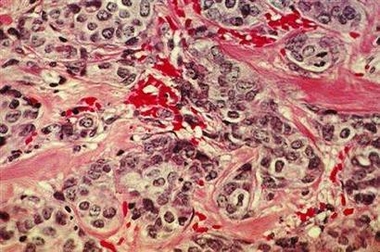Abortion pill thwarts breast cancer gene
(AP)Updated: 2006-12-01 09:15
WASHINGTON - Scientists used the abortion drug RU-486 to keep tumors at bay in mice bred with a gene destined to give them breast cancer.
If researchers could create a safer hormone blocker, it might offer a long-awaited alternative for women with the bad gene. They have few good options today to prevent breast cancer.
"All of us have to be cautious," said cell biologist Eva Lee of the University of California, Irvine, who led the research published in Friday's edition of the journal Science. "But I do think if there is a better anti-progesterone available, hopefully there will be other options in the future for these women."
Cancer specialists not involved with the experiment praised the work, even as they cautioned women not to get their hopes up yet.
"This is an avenue worth pursuing on a research level," said Dr. Claudine Isaacs, an oncologist at Georgetown University Hospital who works closely with carriers of BRCA1 and a related gene.
"This is work in a mouse," she said. "It's clearly too early to start recommending use of this agent."
Dr. Len Lichtenfeld, the American Cancer Society's deputy chief medical officer, said researchers and patients will "take interest in this topic and explore it further."
He called the paper "elegant research," but stressed that "it would not be appropriate in any way, shape or form that women start taking RU-486 for this purpose."
Long-term use of RU-486 could suppress the immune system and cause other side effects.
Some 212,000 women in the United States will be diagnosed with breast cancer this year. Only 5 percent to 10 percent will have a hereditary form. Women who inherit mutations in the BRCA1 gene are at far greater risk of cancer than the average woman. By age 70, more than half of those gene carriers develop either breast or ovarian cancer.
Their options today include:
_Frequent cancer screening, in hopes of catching it early.
_Removing both breasts while they are still healthy.
_Taking the anticancer drug tamoxifen, which helps some women.
_Removing the ovaries before age 50, cutting the risk of both cancers.
These are anxiety-provoking options. Hence the push to determine exactly how BRCA1 triggers tumors, so maybe doctors and women could fight its bad effects more easily.
Particularly puzzling, BRCA1 mutations occur in every cell of the body, raising questions about why the defect would trigger cancer just in reproductive organs.
In their research, Lee and colleagues created mice whose mammary glands only harbor the BRCA1 mutation.
The scientists found that the bad gene caused breast tissue to have too-high levels of progesterone receptors. That means the hormone sticks around longer than it should, in turn sparking excess cell growth. In fact, the mice's breast tissue looked like it should have during pregnancy, when temporarily high progesterone levels cause breast growth as the gland prepares to make milk.
The final evidence came from RU-486, also called mifepristone. It causes human abortions by suppressing progesterone, a hormone crucial to sustaining pregnancy.
Instead of a human pill, Lee implanted some of the cancer-prone mice with an RU-486 pellet designed to slowly emit the drug into their bodies over two months.
By 8 months of age, each of the untreated gene-defective mice had developed tumors. But none of the mice given RU-486 had developed tumors by 12 months, when the study stopped.
Lee cautioned that RU-486 is not a good candidate for such long-term use in people. She said more targeted progesterone blockers already are being developed.
|
||
|
||
|
|

